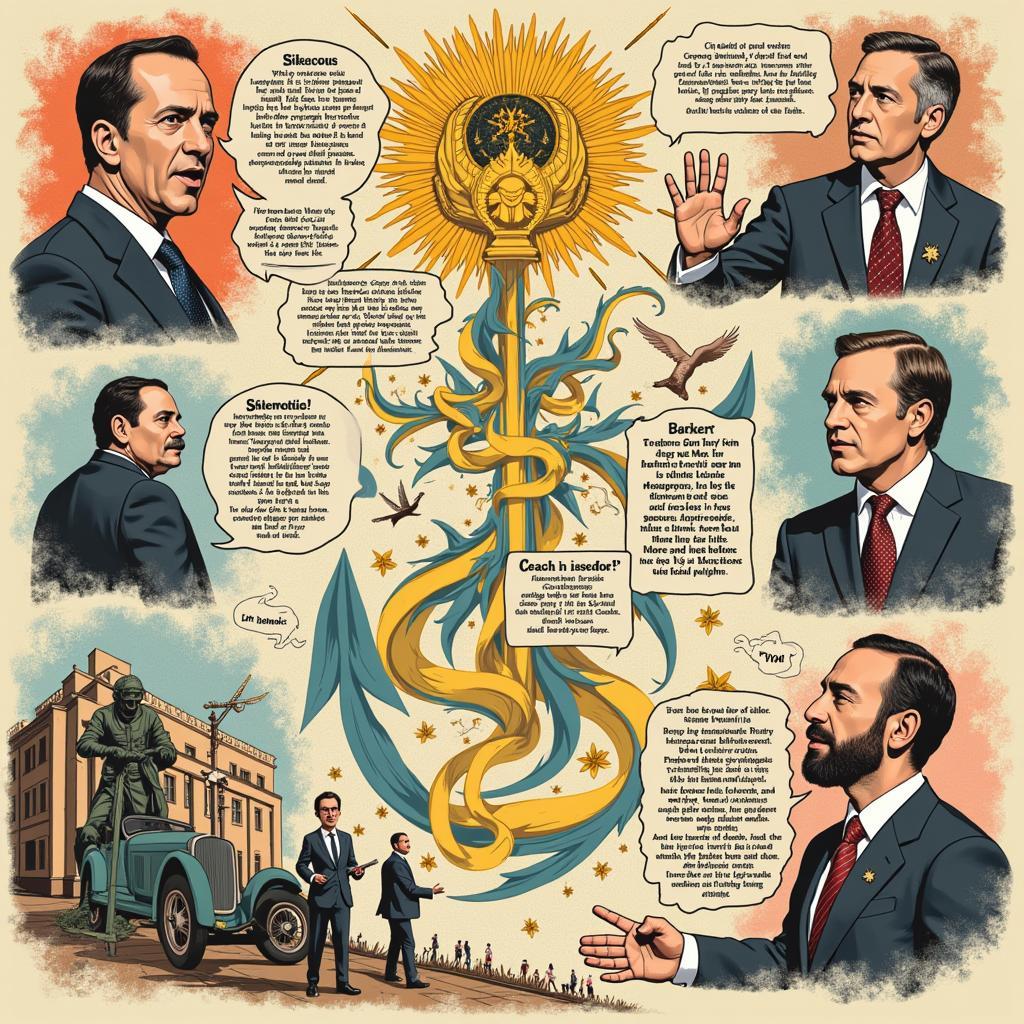Myths, those ancient stories passed down through generations, might seem like relics of the past. However, their influence on today’s society is surprisingly profound. How do myths impact today’s society? They shape our values, beliefs, and even our understanding of the world around us. From the stories we tell our children to the political narratives that dominate our news cycles, the echoes of myths can be heard everywhere.
The Enduring Power of Myth in the Modern World
Myths aren’t just entertaining tales; they are powerful tools for understanding the human condition. They offer explanations for natural phenomena, provide moral guidance, and help us grapple with complex existential questions. While science has offered alternative explanations for many of the mysteries that myths once addressed, the underlying themes of these stories continue to resonate with us. They tap into universal human experiences like love, loss, fear, and hope. These narratives, often passed down orally before being written, became ingrained in cultural consciousness, shaping societal norms and behaviors. This is why understanding how myths impact today’s society is crucial for understanding our own cultural landscape.
How Myths Shape Our Values and Beliefs
Many of our core values, such as the importance of courage, honesty, and loyalty, are rooted in ancient myths. Consider the Greek myth of Hercules, whose strength and bravery have inspired generations. Or the tale of King Arthur, whose ideals of chivalry and justice continue to shape our understanding of leadership. These stories, though fictional, provide powerful role models and reinforce ethical principles that guide our behavior. For a fascinating look at the historical impact of societal structures, check out the grange secret society.
What are some common themes found in myths across different cultures? Themes of creation, the struggle between good and evil, the hero’s journey, and the importance of community are remarkably consistent across diverse cultures. This suggests that myths tap into fundamental aspects of the human psyche, providing a shared framework for understanding the world.
Myths and Modern Storytelling
The influence of myths extends far beyond ancient texts. Modern storytelling, in film, literature, and even advertising, often draws upon mythical archetypes and narratives. Think of the popularity of superhero stories, which often echo the hero’s journey found in myths like the Odyssey. Or consider the pervasive use of mythical symbols and imagery in branding and marketing. These modern iterations of ancient myths demonstrate their enduring power to capture our imagination and shape our understanding of the world.
How Myths Influence Politics and Social Movements
Myths can also be powerful tools in political discourse and social movements. They can be used to create a sense of shared identity, mobilize support for a cause, and legitimize political ideologies. By invoking powerful mythical narratives, leaders can tap into deeply held beliefs and values, inspiring action and shaping public opinion. For insights on societal well-being and mental health, see pioneering mental health awareness: strategies for an enlightened society.
 Myths in Politics and Social Movements
Myths in Politics and Social Movements
The Importance of Critical Engagement with Myths
While myths can be powerful forces for good, it’s important to engage with them critically. Myths can also be used to justify harmful stereotypes, perpetuate prejudice, and reinforce existing power structures. We must be mindful of the potential for myths to be manipulated and misused, and we should strive to understand the complex ways in which they shape our world. Looking at historical societal practices can also shed light on this subject, as discussed in first cremation society.
In conclusion, how do myths impact today’s society? They exert a profound influence on our values, beliefs, and understanding of the world. From shaping our personal morals to influencing political discourse, the echoes of ancient myths can be heard everywhere. By engaging with these stories critically, we can gain a deeper understanding of ourselves, our culture, and the forces that shape our world.
FAQ
- What is the difference between a myth and a legend?
- How do myths differ across cultures?
- Why are myths still relevant today?
- Can myths be harmful?
- How can we use myths constructively?
- How do myths impact education?
- What is the role of mythology in psychology?
For further support, contact us at Phone: 02043854663, Email: [email protected] Or visit us at: Khu 34, Bac Giang, 260000, Vietnam. We have a 24/7 customer support team.